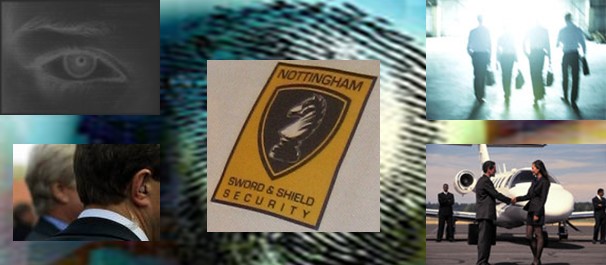TOP BODYGUARDS, or
CLOSE PROTECTION PROFESSIONALS (CPP) or
EXECUTIVE PROTECTION SPECIALISTS (EPS) are usually referred by friends, trusted associates or reputable companies (often insurance carriers). Here are a few little known secrets that tend to be common traits of the best of the best.
By John Nottingham, Bodyguard Trainer http://ScottsdaleExecutiveSecurity.com
1. Quiet professionalism
Experienced bodyguards do not feel the need to brag and have long since moved beyond the self-promoting ego stage. Fame seeking vicarious celebrity or overly aggressive name dropping is a red flag. They are usually quiet professionals who would represent a company or organization with dignity and professionalism, keeping out of the limelight. They are calm, centered and create peace-of-mind for clients.
2. Discretion & Confidentiality
Clients want to know that their personal lives stay just that - personal. Top bodguards know that they have access to personal information that could be damaging and therefore protect it as they would the life of their clients. Bad press can significantly damage public image, the brand, embarrass a client or family. This leverage can also be used to breach security, safety and privacy. Top bodyguards ensure the clients privacy is protected.
3. Excellent communicators
The ability to communicate clearly and concisely save clients time and reassure them that their protective agent is competent, organized and thorough. It is a critical skill for briefing a client on potential threats, protective measures taken, and coordinating events, details and important information. They are also skilled listeners and masters at reading body language. Most potential hostile situations can be avoided with strong persuasive communication. Tact is essential when representing a high profile client as a bodyguards actions represent the client, their brand or organization.
4. Organized, highly disciplined and systematic
Top protective agents are punctual and dedicated at a level where they consider what they do a mission and duty. It goes beyond a job because the unique value of human life. They are healthy, fit, skilled and strong - most being advanced Black Belt martial artists. Many choose to not drink alcohol, cut out excessive sugars, caffeine or other factors that could interfere with their performance. They know their limits and establish healthy boundaries for sleep, rest and recovery so they can optimize job performance. Great bodyguards are methodical because attention to detail is not only reassuring to clients but reduces the probability of human error. The best of the best bodyguards are detailed planners, always having contingency options. They know that appearance, professional attire and presentation are essential non-verbal communication skills as well.
5. Dedicated to ongoing training
A hallmark of a great bodyguard is a hunger for continual improvement and professional development. Skills need to be honed, sharpened and continually upgraded. Furthermore, training needs to be ever adapting and fit the context, locations and lifestyle of the client. Ongoing training keeps the mind sharp, the body ready, and the agent motivated and updated.
6. Disclose limitations and specialties
Healthy confidence with humility is key to a professional bodyguard. The best will fully disclose their skill set and make a point to never misrepresent or overstate their skills. They will be quick to consult experts in various specialties.
7. Problem solvers
The best bodyguards are problem solvers. They can think quickly on their feet, adapt to situations and reduce stress for the client. When I train my teams I often say, "You are either a problem solver or you are a problem." This adds tremendous value to a client. From protective, logistical, relationship and other complications, the best bodyguards tackle problems with creativity, grace and intelligence.
8. High tolerance and patience
You can recognize a highly trained bodyguard because they maintain a constant state of professional separation from highly emotional situations, their clients as well as stressful times. This high level of emotional maturity provides a pillar of emotional strength for clients and reassures them that the bodyguard is centered and doing his or her job. Professional bodyguards will also study and prepare so they understand and can respect cultural differences and demonstrate proper etiquette.
9. Collaborate well with other teams, agencies and groups
It is imperative for a bodyguard security professional to be able to cooperate and coordinate with other groups. From hospitals, hotel managers, law enforcement, local security and other staff, the bodyguards job is one of a leader. Collaboration is key to superlative service and safety.
10. Clearly separate personal and professional life
True professionals keep a clear line of separation between their personal lives and professional ones. Although difficult, due to the often close association and long hours agents often spend with clients, it is of paramount importance to make prudent survival decisions and professionally serve a client. Good bodyguards work hard to never allow personal issues to interfere with their duties as a protective agent.
John D. Nottingham, EPS, 6th Dan
Nottingham Sword & Shield Security
http://ScottsdaleExecutiveSecurity.com
4731 E. Greenway Rd Suite 10
Phoenix, Arizona 85032
Telephone: 602.896.8721








